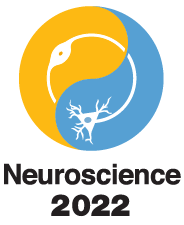On Friday, the United States Supreme Court repealed Roe v. Wade, which was precedent for the nation-wide legal right to an abortion.
That sucks.
I won’t pretend for an instant that I have anything particularly insightful to say about that particular case. But I do want to post something here about something this signals that are relevant to my own particular interests, namely science education.
It is clear that the US Supreme Court repealed Roe v. Wade because they could. Far right conservatives have been wanting this and threatening this for years. It was always clear that as soon as there was conservative majority on the court, Roe v. Wade would be under threat. And now it’s done.
There was not a reasoned legal decision. This was a partisan power play to give far right conservatives what they wanted.
There is every reason to think that far right conservatives are going send a host of cases going to the Supreme Court. Andy Kim reported hearing, “Let’s keep this going now” on the floor of the House of Representatives.
Judge Clarence Thomas (who will not bury a hatchet) practically invited it when he laid out three cases that he thinks the court should revisit. They are all high on the conservative wish list to repeal and all concern people’s sex lives. (Which is, by the way, super creepy.)
But
Edwards v. Aguillard has to on the far right conservative hit list.
That’s the ruling that said it was unconstitutional to teach creationism (or “creation science” as it was called for a while) in science classes in US K-12 public schools because it violated the Establishment Clause of the First Amendment. That said, “states can’t get promote one particular religion over the others.”
No, Edwards v. Aguillard hasn’t been mentioned by name by Thomas or others. I haven’t seen anyone else bring this up yet. But I would bet that creationists are already looking to line up court cases in hope of getting the issue on the docket of the Supreme Court.
Given that Kitzmiller v. Dover never got to the national stage, it wouldn’t surprise me if the Discovery Institute or some other entity decided to make another run at making “intelligent design” legal in schoolrooms.
Creationism is important to the same far right, religious fundamentalist conservatives who have been spearheading the assault on Roe v. Wade. Mike the Mad Biologist has often written about “Nothing in movement conservatism makes sense except in the light of creationism.” (2012, 2019, to give a couple of examples.) My take is similar. The tactics used by creationists for decades were eventually adopted by the wider US conservative political machine as their default mode of operation.
The teaching of creationism will be come up, and soon, if the court continues the way it’s been acting.
This week, the national meeting of the Society for the Study of Evolution has been happening and I’ve asked a couple of times if anyone is even talking about Edwards v. Aguillard. No answer yet. This makes me worry that my colleagues are going to be shocked and appalled if this goes to court and they lose, because they won’t have taken any action or prepared for such an eventuality.
This is small potatoes compare to the big ticket fantasies that conservatives have (i.e., terrorize people who are not white conservative Christian fundamentalists). An enormous amount of damage could be done well before the courts get to repealing a science education case.
But it’s not nothing, either.
Attacks on education undercut the future you can even imagine, never mind the future you can build.
Edit: On reflection, it might not be creationism that goes up for a court challenge. It might be Engel v. Vitals, which ruled against prayer in schools. Or something else about Christianity (disguised as generic “religion”) in public schools. Because it’s one of their big bugbears. They know the power of public education in shaping culture and they want to influence it.
Update, 27 June 2022: Well, this morning’s ruling on Kennedy v. Bremerton School District seems relevant to this post. In particular, the Supreme Court rejects the so-called “Lemon test” that I have seen cited consistently in cases regarding the teaching of creationism.
This is getting out of my knowledge base very fast, but here is one early reaction:
(T)he Supreme Court effectively grants special, heightened First Amendment rights to religious speech, allowing public school teachers to pray on the job while denying most other public employees basic free speech rights.
And from David Shiffman:
I went to public school in a very blue part of a purple state.
As a Jew, I requested that our music class “holiday concert” include at least one song that’s not a Christmas song.
A Christian classmate threatened to murder me.
Today the Supreme Court sided with him, not me.
This seems to be a very clear move towards more religion in public schools. And that would include science classes.
Update 2, 27 June 2022: Something that puzzled me in the decision was verbiage that the Supreme Court had long ago abandoned the Lemon test or words to that effect. Steve Vladek disputes this.
As Leah notes, the conservative majority in Kennedy overrules SCOTUS’s major prior Establishment Clause precedent in Lemon, but tries to pretend that the Court had already overruled it in prior cases (spoiler alert: it hadn’t [Emphasis added.]). This is sketchy even if you think it's correct.
And other people seem to agree. This isn’t ye olde coute rulyngs, but the first time the Supreme Court has explicitly rejected the Lemon test. Tweets here and here, for instance.


